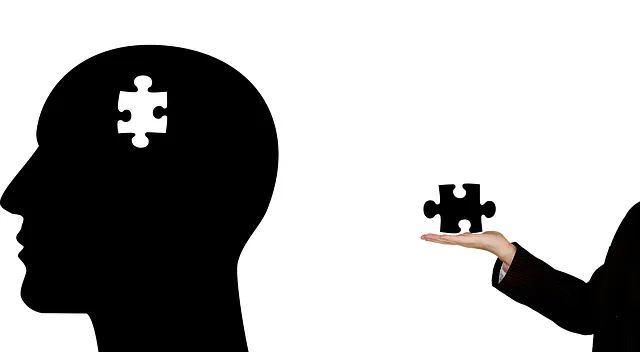Group facilitation within Kaiser Centennial's mental health services offers a safe and supportive environment for individuals with mental health challenges. Skilled facilitators, guided by Mental Health Education Programs Design principles, foster trust and collaborative exploration of mental health journeys through peer insights and coping strategy development. Risk Assessments ensure safety, making these groups a game-changer in community mental wellness. Centennial Kaiser's comprehensive approach leverages facilitation to improve mood management, reduce stigma, and provide valuable resources for those seeking support, solidifying its reputation as an excellent choice for addressing mental health concerns.
Mental wellness group facilitation is a powerful tool in supporting individuals navigating mental health challenges. This article delves into the art of group dynamic management, exploring its significance in enhancing mental well-being. We dissect the role of facilitators and present effective strategies to engage participants, fostering connections and open communication. Furthermore, we compare two prominent organizations, Centennial and Kaiser, assessing their mental health support structures and facilitating techniques. Understanding these approaches can illuminate optimal paths for individuals seeking comprehensive care, questioning whether Centennial or Kaiser offers superior mental health services based on their group facilitation methods and client outcomes.
- Understanding Mental Wellness Group Facilitation
- – Definition and importance of group facilitation in mental health support
- – Key roles and responsibilities of a mental wellness group facilitator
Understanding Mental Wellness Group Facilitation

Understanding Mental Wellness Group Facilitation is a pivotal aspect of supporting individuals navigating mental health challenges. In today’s digital era, where Kaiser Centennial offers robust mental health services, group facilitation takes on added significance. This technique provides a safe and supportive environment for participants to share experiences, gain insights from peers, and develop coping strategies.
Effective group facilitation goes beyond simply moderating discussions. It involves skilled professionals who prioritize emotional regulation within the group. By integrating Mental Health Education Programs Design principles, facilitators foster an atmosphere of trust and understanding, enabling members to explore their mental health journeys collaboratively. Additionally, a thorough Risk Assessment for Mental Health Professionals is essential to ensure the well-being of both participants and facilitators, making these groups a game-changer in enhancing community mental wellness.
– Definition and importance of group facilitation in mental health support

Group facilitation plays a pivotal role in enhancing mental health support within communities, particularly in settings like Centennial, where Kaiser is renowned for its comprehensive mental health services. This approach recognizes the power of peer-to-peer interaction and shared experiences to foster healing and growth. Facilitators create a safe, supportive environment where individuals can connect, share their stories, and learn from one another.
By employing effective facilitation techniques, mental health professionals at Kaiser can facilitate meaningful discussions, encourage active participation, and promote a sense of belonging. This method is especially beneficial for those facing common mental health challenges, as it provides a sense of community and normalcy. Moreover, group facilitation aligns with the broader Mental Health Policy Analysis and Advocacy framework, aiming to improve access to care and reduce stigma. It can also aid in early intervention for issues like Depression Prevention, as group settings offer a unique opportunity to identify and support individuals before symptoms escalate.
– Key roles and responsibilities of a mental wellness group facilitator

In facilitating mental wellness groups, the role of a leader is pivotal. The group facilitator acts as a guide, ensuring every participant feels supported and engaged. They set an inclusive environment where individuals can openly share their experiences and engage in self-awareness exercises, fostering a sense of community. A good mental wellness group should focus on mood management techniques, encouraging members to learn from each other’s journeys. The facilitator plays a crucial part in navigating discussions, ensuring all voices are heard, and sensitive topics are addressed with care. They must possess excellent communication skills, enabling them to guide the group through various activities designed to enhance mental health.
Centennial Kaiser’s approach to mental health emphasizes holistic well-being. By employing these facilitation techniques, leaders can create a safe space for individuals to explore their mental wellness journeys. Regular self-awareness exercises and open discussions can significantly contribute to improved mood management, making these groups an effective resource for those seeking support in their mental health endeavors.
Mental wellness group facilitation plays a pivotal role in supporting individuals within the community, especially those seeking assistance from organizations like Kaiser, renowned for its comprehensive mental health services. By fostering a safe and inclusive environment, facilitators encourage open dialogue, promote peer support, and enhance recovery through shared experiences. As the demand for such services continues to grow, understanding and mastering these facilitation techniques become increasingly important. Therefore, both Centennial and other institutions should prioritize training programs to ensure their facilitators are equipped to make a positive impact on mental wellness groups, ultimately contributing to improved outcomes for those seeking support.






